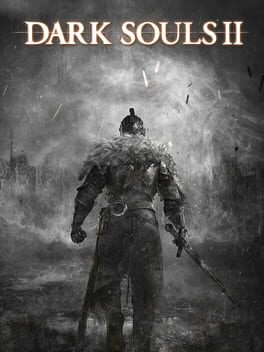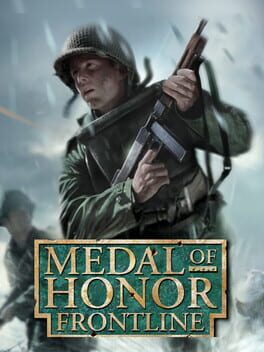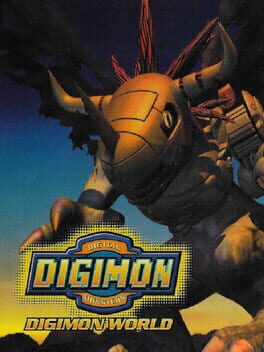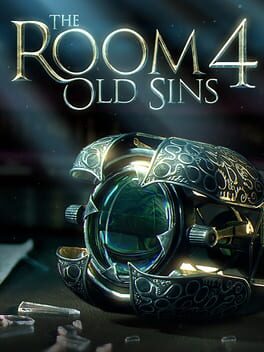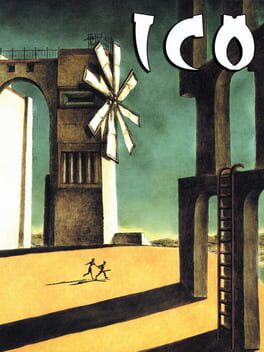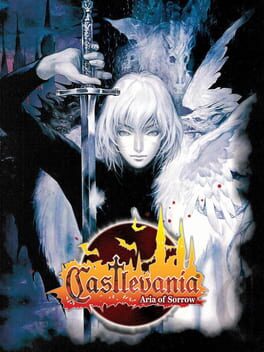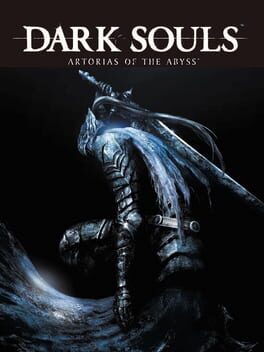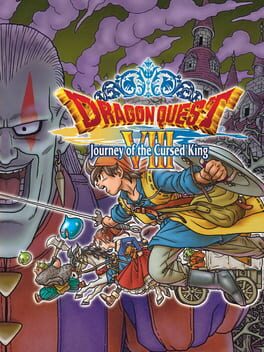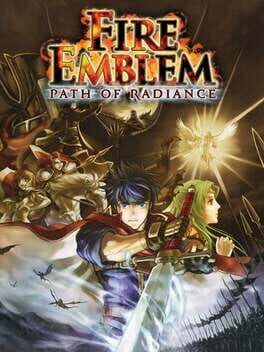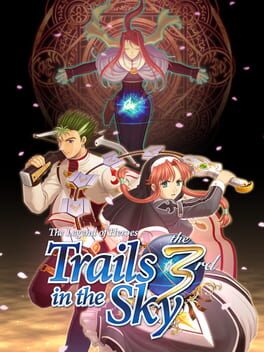Guigas
221 reviews liked by Guigas
Dark Souls II
2014
Silent Hill
1999
Catherine Classic
2019
Cocoon
2023
Cocoon is a very impressive exercise in minimalism. From the fundamentals of the game design in its puzzles and presentation to its world-building and the lack of a UI, it really is an excellent instance of 'show, don't tell' taken to its absolute extremes, with nary a word spoken or written outside of the main menus.
That being said, it does tend to get in its own way by being a little too obtuse at times, mainly in its storytelling. Now, having a narrative isn't a firm requirement for me by any stretch; however, with the way Cocoon presents its world and bosses to the player, it clearly has something that it wants to say. It relies on purely visual storytelling, of course, but it all culminates in a finale that just makes you go "huh." Not even necessarily in a good or bad way; I mean, it's stunning to look at, but as to exactly what you're looking at, your guess is as good as mine.
Regardless, the puzzles are very impressive and incredibly well designed. They more or less follow the same formula, and while I would have liked a little more variation in how they play out, it's a very strong formula, and the many 'eureka!' moments it creates as the puzzles get more complex feel really satisfying.
All in all, I was really pleased with Cocoon, and it definitely lives up to the huge praise and hype that it's received in the past month(s). Its puzzles certainly employ more 'outside the box' solutions than many might be expecting, and there are no accessibility options or appropriate signposting to aid those who may get stuck. Perhaps this is something they may add, but otherwise, puzzle aficionados will surely be pleased with what Cocoon presents them.
8/10
That being said, it does tend to get in its own way by being a little too obtuse at times, mainly in its storytelling. Now, having a narrative isn't a firm requirement for me by any stretch; however, with the way Cocoon presents its world and bosses to the player, it clearly has something that it wants to say. It relies on purely visual storytelling, of course, but it all culminates in a finale that just makes you go "huh." Not even necessarily in a good or bad way; I mean, it's stunning to look at, but as to exactly what you're looking at, your guess is as good as mine.
Regardless, the puzzles are very impressive and incredibly well designed. They more or less follow the same formula, and while I would have liked a little more variation in how they play out, it's a very strong formula, and the many 'eureka!' moments it creates as the puzzles get more complex feel really satisfying.
All in all, I was really pleased with Cocoon, and it definitely lives up to the huge praise and hype that it's received in the past month(s). Its puzzles certainly employ more 'outside the box' solutions than many might be expecting, and there are no accessibility options or appropriate signposting to aid those who may get stuck. Perhaps this is something they may add, but otherwise, puzzle aficionados will surely be pleased with what Cocoon presents them.
8/10
This game conveys the graveness of its setting better than most WWII games.
From the main menu theme (which is one of the most gorgeous horn pieces ever composed) to the opening cutscene, from the poem at the beginning of the game to the spliced in war-time black and white footage, you can tell this was made by a different EA. A big-budget EA that still had a soul.
Medal of Honor: Frontline starts you off storming the beaches of Normandy. Rather than the exhilarating rush you get from most shooters, this is panicked and urgent. Even if you're not fully aware of the significance of that event, the game makes it clear that this is serious. Shortly afterwards, you are recruited for some "behind enemy lines" work, which will leave you more isolated for the remainder of the game. This is a sensible change of pace for a few reasons.
The game has the sincerity to portray WWII somberly, but it also knows that no one wants to be miserable for a whole campaign, so it takes you away from the deaths of allied soldiers and allows you to simply fight Nazis on their turf for the remainder of the game.
The multiplayer is practically an afterthought, so I wouldn't waste your time with it, but the campaign is really impressive. Again, I can't emphasize enough how beautiful the music is.
It's really weird to look at EA games from the early 2000s. The games were frequently earnest and connected with a lot of people. I hope that someday (maybe in response to Jedi: Fallen Order's success) they'll begin to bring that focus back to their single player titles.
From the main menu theme (which is one of the most gorgeous horn pieces ever composed) to the opening cutscene, from the poem at the beginning of the game to the spliced in war-time black and white footage, you can tell this was made by a different EA. A big-budget EA that still had a soul.
Medal of Honor: Frontline starts you off storming the beaches of Normandy. Rather than the exhilarating rush you get from most shooters, this is panicked and urgent. Even if you're not fully aware of the significance of that event, the game makes it clear that this is serious. Shortly afterwards, you are recruited for some "behind enemy lines" work, which will leave you more isolated for the remainder of the game. This is a sensible change of pace for a few reasons.
The game has the sincerity to portray WWII somberly, but it also knows that no one wants to be miserable for a whole campaign, so it takes you away from the deaths of allied soldiers and allows you to simply fight Nazis on their turf for the remainder of the game.
The multiplayer is practically an afterthought, so I wouldn't waste your time with it, but the campaign is really impressive. Again, I can't emphasize enough how beautiful the music is.
It's really weird to look at EA games from the early 2000s. The games were frequently earnest and connected with a lot of people. I hope that someday (maybe in response to Jedi: Fallen Order's success) they'll begin to bring that focus back to their single player titles.
Lies of P
2023
Lies of P copies from Bloodborne and Sekiro like a child does from his friend's homework, it has all the answers but it doesn't understand the assignment.
Developer Round8's main takeaway from Dark Souls is that you die a lot, and everyone seems to really like that about it. After all, it's telling you to Prepare to Die right in the title, so clearly that's what people show up for. Well, Lies of P would like you to die too, only it's not so invested in making anything about that loop fun. Round8 has not read deep enough to figure out what makes Dark Souls so engaging and has produced a frustratingly clumsy imitation for it, one that is at times mean-spirited and cheap because that's what Round8 assumes Souls to be.
Lies of P's combat system places a significant emphasis on perfect-parries, which are initiated by hitting the block button a few frames before the enemy's attack lands. Against normal field enemies who throw out one or two attacks at a time, this feels pretty good. Bosses, however, love to initiate absurd 15-hit combos full of staggered animations and straight up fake-outs intended to trip you up and punish you, and that's where I start to fall off with how Lies of P operates. The speed at which your parry is initiated and the level of precision involved makes this system unreliable against flurry attacks, and a severely neutered dodge roll gives you little to fall back on. The game also takes a very Dark Souls 3 "poise for me but not for thee" stance, so I hope you don't mind watching Timothee Chalamet slowly get his wooden ass back up until you save enough Quartz to upgrade his P-Organ so he can dodge while prone.
Perfect-parries, fable arts (see: Dark Souls 3's weapon arts), and charge attacks are all necessary for quickly building stagger damage, because of course this game has a stagger mechanic. It also makes no attempt to convey when you should be pressing the attack or playing defensively, because it obfuscates its stagger meter for absolutely no good reason. Almost all bosses have a second health bar, too, because they all want to be the giant monkey from Sekiro so badly. At this point, I think Sekiro's impact on game design has been a net negative.
Round8's rote copying doesn't end there, however. The door knights from Dark Souls 2, giants from Dark Souls 3, sawtooth blade from Bloodborne, and animation for attempting to use an out-of-stock consumable from Dark Souls are all here. A veritable greatest hits. Round8's wholesale theft isn't limited to Fromsoft, however. Skip this next paragraph if you don't want to spoil some late game character beats and reveals:
Lorenzini Venigni, a friendly NPC who upgrades your Legion Arm (think Sekiro's shinobi prosthetic), is an orphan turned playboy millionaire whose parents were murdered after watching a fantasy-adventure film with their son, leaving him in the care of his faithful butler. The identity of his parent's killer? The King of Riddles, of course. Italian Riddler saying "riddle me this" is as funny as it is brazen, but the biggest laugh Lies of P's borderline-litigious character writing got from me was the post-credits reveal of Giangio being a double agent, which is presented in an extremely Metal Gear-esque way, complete with a "Mr. President..." level name-drop that sets up a potential series of public domain Souls-likes.
Doing something new with something old seems to be the overarching theme of 2023, and Lies of P plays hopscotch on that thin line between inspiration and mimicry. Thankfully, Round8's attempts to recontextualize Carlo Collodi's Adventures of Pinocchio do often result in success, and a strong emphasis on narrative helps pull together borrowed and original ideas to tell a cohesive story that builds upon its primary source material in interesting ways. I was way more invested in the lore of Krat and its inhabitants - yes, even Italian Batman - than I thought I'd be, and some solid art direction and excellent music left me flirting with the idea of a second run.
I also had a great time with the crafting system. You can strap a gigantic blunt wrench head to a pole and use it like a spear, which is exactly the level of stupid I want out of something like this. Hilts determine scaling and attack animations, while blades affect speed and raw damage. Being able to configure a greatsword that's usable on a dexterity build made me feel more inclined to try out weapons without ever feeling like I built my character wrong or locked myself out of something. It's also nice that throwable items remain viable throughout the game, meaning I always had them in my kit whereas I typically phase them out pretty early in most Souls games.
I'm sure this game will attract some annoying people that are very good at video games who will insist Lies of P is beyond reproach, where every flaw is in fact borne from a lack of skill, asserted in a way that reads more as veiled self-aggrandizement than serious criticism. Par for the course with Souls games and the "get good" crowd they attract. I firmly believe that Lies of P is a deeply flawed and derivative game in dire need of re-balancing and new ideas, regardless of how long it took for me to realize I needed to continually dodge left to beat the King of Puppets.
Anyway, I should've stolen Larry Davis' review and changed one or two things about it. Really give you all the true Lies of P experience.
Developer Round8's main takeaway from Dark Souls is that you die a lot, and everyone seems to really like that about it. After all, it's telling you to Prepare to Die right in the title, so clearly that's what people show up for. Well, Lies of P would like you to die too, only it's not so invested in making anything about that loop fun. Round8 has not read deep enough to figure out what makes Dark Souls so engaging and has produced a frustratingly clumsy imitation for it, one that is at times mean-spirited and cheap because that's what Round8 assumes Souls to be.
Lies of P's combat system places a significant emphasis on perfect-parries, which are initiated by hitting the block button a few frames before the enemy's attack lands. Against normal field enemies who throw out one or two attacks at a time, this feels pretty good. Bosses, however, love to initiate absurd 15-hit combos full of staggered animations and straight up fake-outs intended to trip you up and punish you, and that's where I start to fall off with how Lies of P operates. The speed at which your parry is initiated and the level of precision involved makes this system unreliable against flurry attacks, and a severely neutered dodge roll gives you little to fall back on. The game also takes a very Dark Souls 3 "poise for me but not for thee" stance, so I hope you don't mind watching Timothee Chalamet slowly get his wooden ass back up until you save enough Quartz to upgrade his P-Organ so he can dodge while prone.
Perfect-parries, fable arts (see: Dark Souls 3's weapon arts), and charge attacks are all necessary for quickly building stagger damage, because of course this game has a stagger mechanic. It also makes no attempt to convey when you should be pressing the attack or playing defensively, because it obfuscates its stagger meter for absolutely no good reason. Almost all bosses have a second health bar, too, because they all want to be the giant monkey from Sekiro so badly. At this point, I think Sekiro's impact on game design has been a net negative.
Round8's rote copying doesn't end there, however. The door knights from Dark Souls 2, giants from Dark Souls 3, sawtooth blade from Bloodborne, and animation for attempting to use an out-of-stock consumable from Dark Souls are all here. A veritable greatest hits. Round8's wholesale theft isn't limited to Fromsoft, however. Skip this next paragraph if you don't want to spoil some late game character beats and reveals:
Lorenzini Venigni, a friendly NPC who upgrades your Legion Arm (think Sekiro's shinobi prosthetic), is an orphan turned playboy millionaire whose parents were murdered after watching a fantasy-adventure film with their son, leaving him in the care of his faithful butler. The identity of his parent's killer? The King of Riddles, of course. Italian Riddler saying "riddle me this" is as funny as it is brazen, but the biggest laugh Lies of P's borderline-litigious character writing got from me was the post-credits reveal of Giangio being a double agent, which is presented in an extremely Metal Gear-esque way, complete with a "Mr. President..." level name-drop that sets up a potential series of public domain Souls-likes.
Doing something new with something old seems to be the overarching theme of 2023, and Lies of P plays hopscotch on that thin line between inspiration and mimicry. Thankfully, Round8's attempts to recontextualize Carlo Collodi's Adventures of Pinocchio do often result in success, and a strong emphasis on narrative helps pull together borrowed and original ideas to tell a cohesive story that builds upon its primary source material in interesting ways. I was way more invested in the lore of Krat and its inhabitants - yes, even Italian Batman - than I thought I'd be, and some solid art direction and excellent music left me flirting with the idea of a second run.
I also had a great time with the crafting system. You can strap a gigantic blunt wrench head to a pole and use it like a spear, which is exactly the level of stupid I want out of something like this. Hilts determine scaling and attack animations, while blades affect speed and raw damage. Being able to configure a greatsword that's usable on a dexterity build made me feel more inclined to try out weapons without ever feeling like I built my character wrong or locked myself out of something. It's also nice that throwable items remain viable throughout the game, meaning I always had them in my kit whereas I typically phase them out pretty early in most Souls games.
I'm sure this game will attract some annoying people that are very good at video games who will insist Lies of P is beyond reproach, where every flaw is in fact borne from a lack of skill, asserted in a way that reads more as veiled self-aggrandizement than serious criticism. Par for the course with Souls games and the "get good" crowd they attract. I firmly believe that Lies of P is a deeply flawed and derivative game in dire need of re-balancing and new ideas, regardless of how long it took for me to realize I needed to continually dodge left to beat the King of Puppets.
Anyway, I should've stolen Larry Davis' review and changed one or two things about it. Really give you all the true Lies of P experience.
Esse jogo é uma mistura meio amarga, mas que a balança pesa mais pelo lado ruim. Falando das partes boas, é um jogo divertido, é muito prazeroso jogar de sniper nele, o mapa ajuda bastante nisso, sendo bastante irregular facilita achar uma boa posição para atirar. O enredo também é interessante... mas fica muito saturado devido a estrutura das missões, o que faz o jogo ser desnecessariamente grande. Mas preciso falar muito mal da jogabilidade, o jogo demora uma eternidade para abrir e iniciar, mesmo jogando offline, até existe uma variedade de armas, mas não muda quase nada de uma para outra. Dirigir no jogo é uma ♥♥♥♥♥, aviões são um lixo e é impossível cair da moto, no mais picapes e helicópteros são os melhores veículos.
Digimon World
1999
The Room: Old Sins
2018
The Room series is just a series of Escape Room type puzzles that are not very challenging, but a fun and enjoyable experience nonetheless. There is a narrative hidden behind the gameplay but I never really got to caring about it, and is not a crucial part of beating the games. They are probably worth a buy in a bundle/sale.
